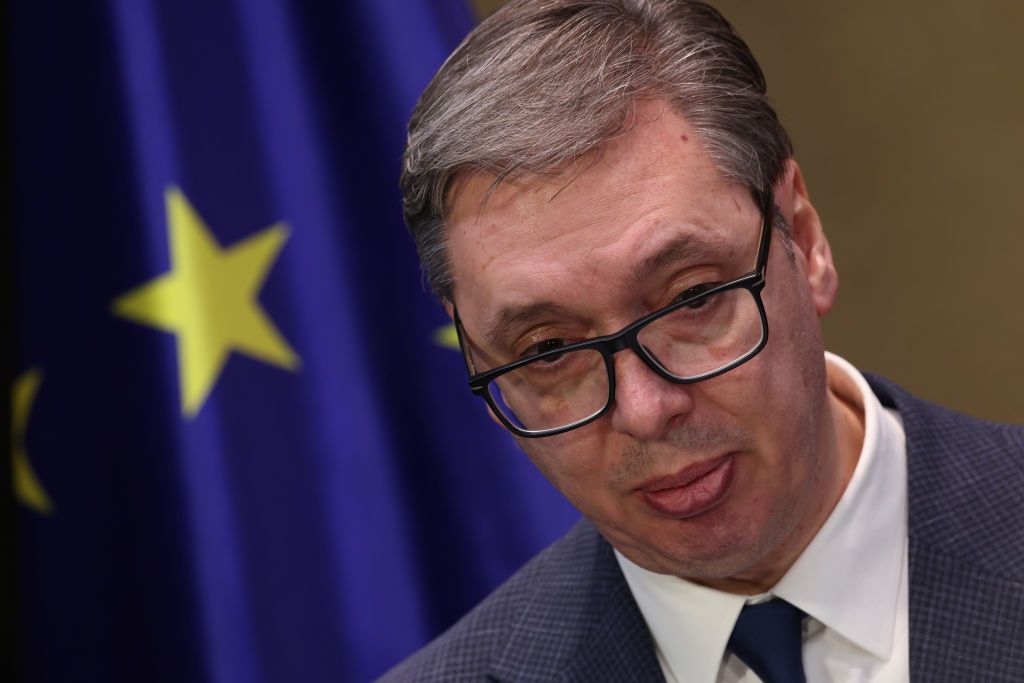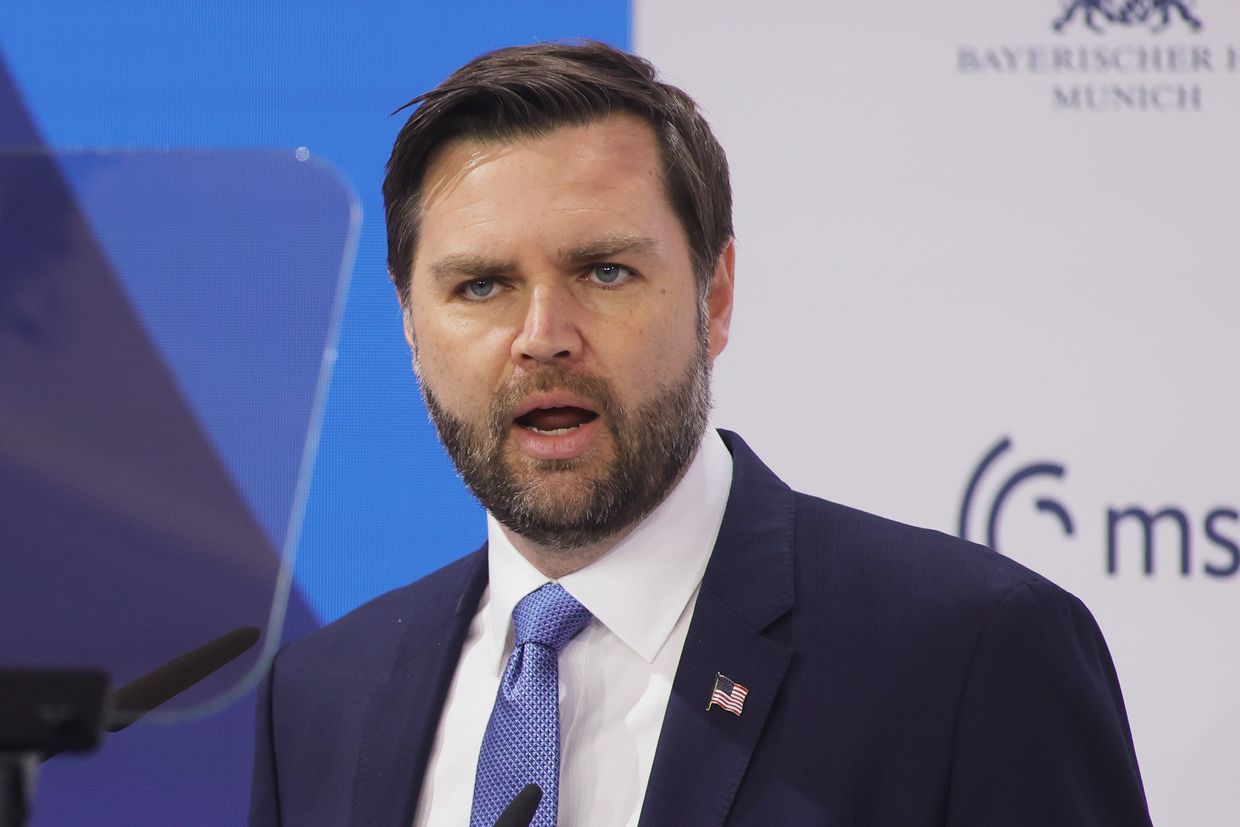Moldova enacted a state of emergency, as the country gears up for an energy crisis at the start of 2025 following the end of Ukraine's obligations to transport Russian gas through its territory.
Moldova, and especially the country's breakaway region of Transnistria, will be hit the hardest following the end of the decades-long agreement.
Moldovan Prime Minister Dorin Recean said that the country has enough gas, bought on the international market, to keep the right bank of the Dniester (Nistru) River warm throughout the winter ahead.
But, he added, some 360,000 citizens on the left bank of the river, in the Russia-controlled region of Transnistria, "are still dependent on one source of import — Gazprom."
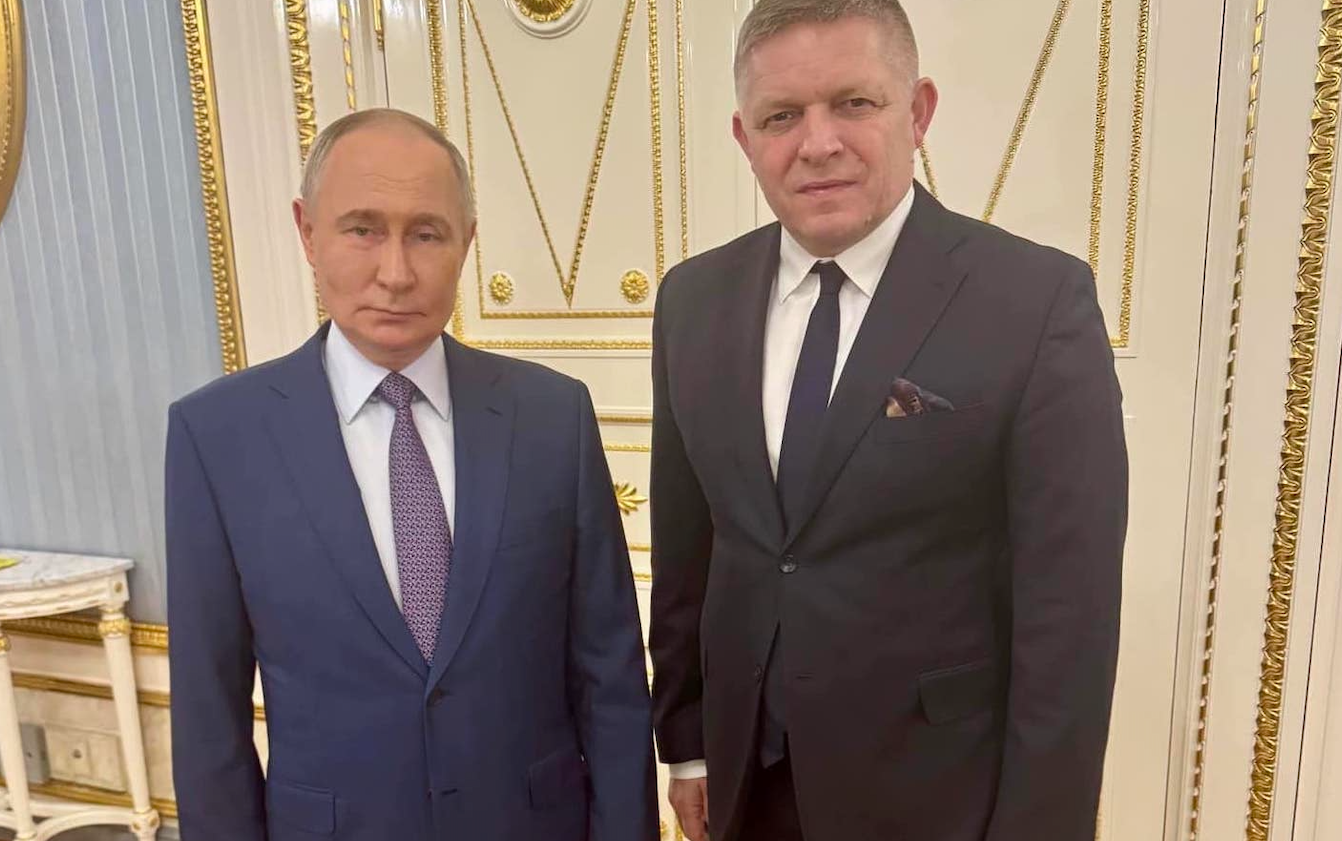
Russia's blackouts
The leader of the Russian-controlled Transnistria declared a state of economic emergency on Dec. 6. Heaters, as well as basic goods like rice, grains, matches, salt and so on, have disappeared from shops, hoarded by the local population in anticipation of the crisis ahead.
Following decades of relying on free Russian gas, the Moscow-controlled region will now need to pay market prices, lowered by energy bill relief schemes provided by the Moldovan government.
Authorities in Chisinau and experts expect that Russia will eventually cover Transnistrian gas needs, however, ensuring transport via the Trans-Balkan pipeline, to keep the region afloat.
They add that the rest of the country will most likely be cut off from future cheap Russian gas imports in order to stir dissatisfaction with rising prices ahead of the 2025 parliamentary elections.
Transnistria, on the left bank, and the rest of Moldova, on the right bank, divided by the Dniester, are interdependent, as Moldova relies on cheap electricity produced by the Russian-owned MGRES, a company based in the town of Dnestrovsk, de facto controlled by Transnistria.
The interdependence is greater since Moldova stopped importing electricity from Ukraine, following Russian attacks on the country's energy infrastructure.
The energy plant can switch to produce electricity with coal rather than gas but the transition may involve a 10 hour blackout, according to Transnistria's self-declared Economy Minister Serghei Obolonik. "That is dangerous and many things could happen (during that window)," said journalist Irina Tabaranu, who runs the media outlet Zona de Securitate, focused on Transnistria.
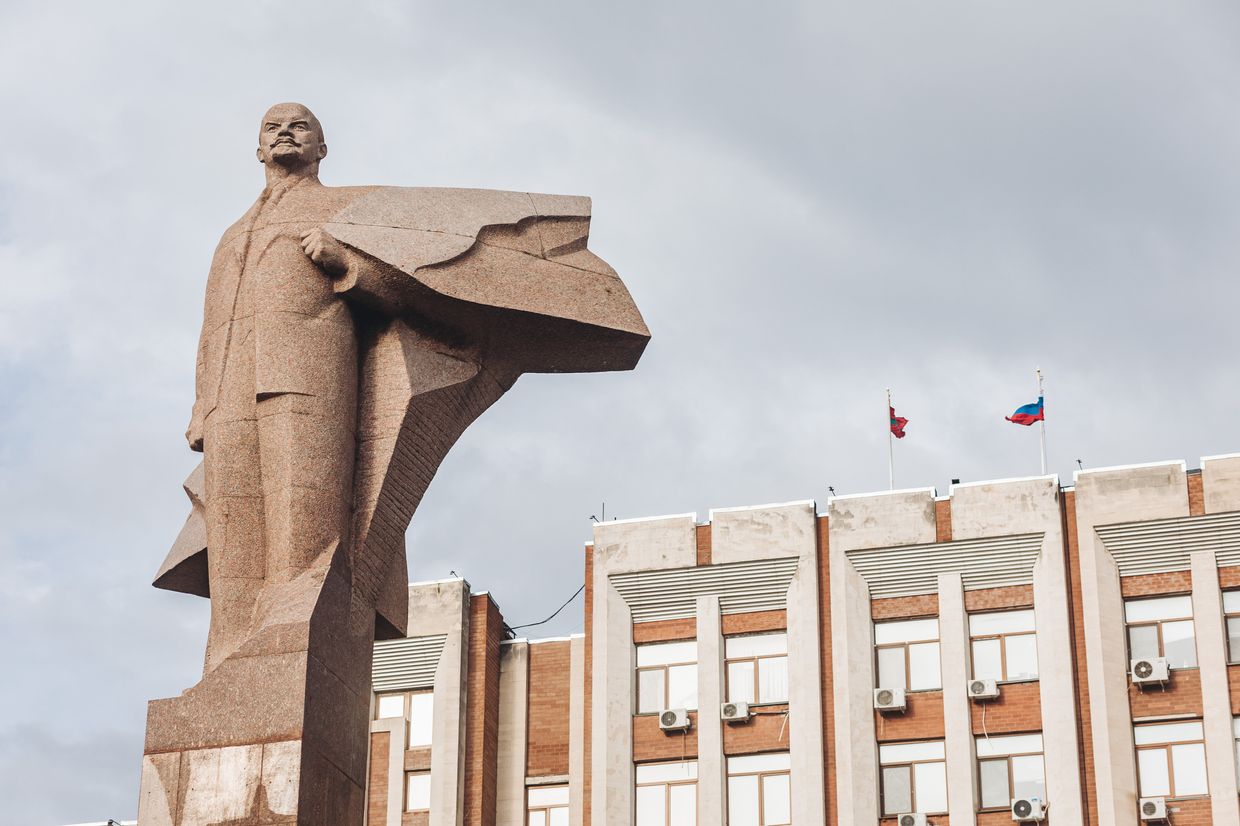
Shorter blackouts may also affect both parts of the country in 2025, according to the government, as there haven't been any official announcements concerning the use of the Trans-Balkan pipeline yet.
By cutting off Moldova from gas imports, Russia is giving up the leverage it had on the country, said former Energy Minister Victor Parlicov, who was dismissed from his post on Dec. 5.
Moldovan pro-Kremlin forces, as well as some pro-European opposition voices, meanwhile, place the blame on the Chisinau government for this new energy crisis. Among the main faults cited was the lack of clarity about the country's future energy policy and little action to stock up while gas for the country was still cheap.
As a result of the shortcomings, Parlicov, together with Victor Bînzari, head of state energy provider Energocom, and Sergiu Tofilat, who served as a board member of the Gazprom subsidiary MoldovaGaz were dismissed in early December.
Parlicov, Bînzari, and Tofilat claim to be mere scapegoats.
Vadim Ceban, the interim head of MoldovaGaz, who was involved in the gas acquisitions, is also to leave his job.
Taking responsibility for Moldovan citizens in Transnistria and attempting to ensure cheap electricity for all of its population, Chisinau carried direct negotiations with Gazprom on behalf of the breakaway region, claiming an economic and political necessity. The step was unpopular with some parts of Moldovan society. Parlicov went to Saint Petersburg to negotiate with the Russian company's CEO, Alexey Miller, on Nov. 25, where they differed on a disputed debt unrecognized by a Chisinau-commissioned international audit.
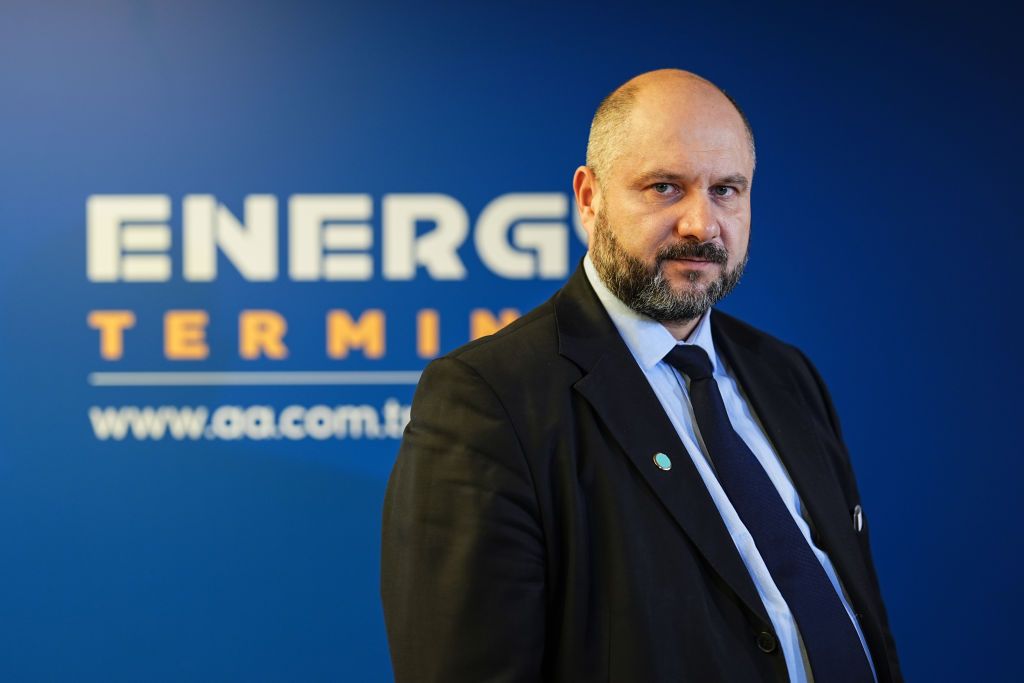
"It looks stupid to ask for the withdrawal of Russian troops from Transnistria and meanwhile request Russia to continue to give free gas to the region," Tabaranu from Zona de Securitate said. According to the journalist, this crisis could have been an opportunity to reintegrate the country.
"Why do we ask for help from international partners to subsidize our bills year on year rather than asking them to contribute to the reintegration of 11% of our country?" she asks.
"Steps towards reintegration cannot be made at the moment due to the presence of Russian troops in Transnistria," Oleg Serebrian, deputy prime minister for reintegration, told Kyiv Independent, referring to the 2,500 soldiers stationed there.
"But we are closing the gap with people on the left bank (of the river) and showing them that Chisinau cares about citizens" there. "They feel the dependence on the Moldovan government."
Meanwhile, Russia accused Chisinau that it coins a “plan for a military operation” in Transnistria. The Moldovan government rejected the accusations, saying it only relies on “peaceful solutions” in the reintegration of the country. Experts argue that the Russian disinformation campaign aims to distract from the energy crisis, sow further panic, as well as the grounds for possible provocations in the occupied region.
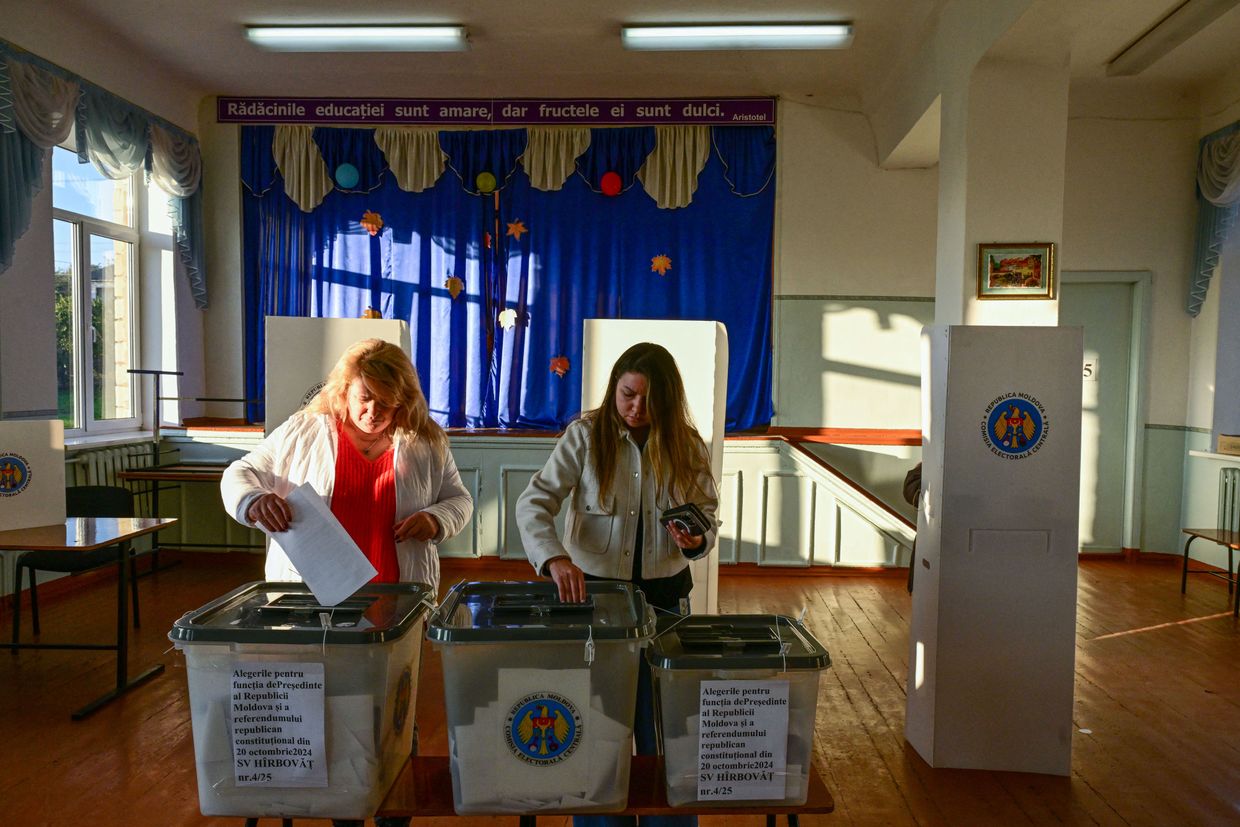
Elections ahead
The government in Chisinau is dealing with the looming energy crisis in the backdrop of the upcoming elections set for July.
Prime Minister Recean, who has taken over the energy portfolio, said the authorities have reassured citizens they won't pay higher bills than last winter, although the needs-based subsidy mechanism has been changed from being calculated automatically to a cash-in-hand scheme, generating further distress.
A recent sociological study by Zona de Securitate and the think tank Watchdog shows that there is more openness towards reintegration in Transnistria after the start of the Russian full-scale invasion of Ukraine.
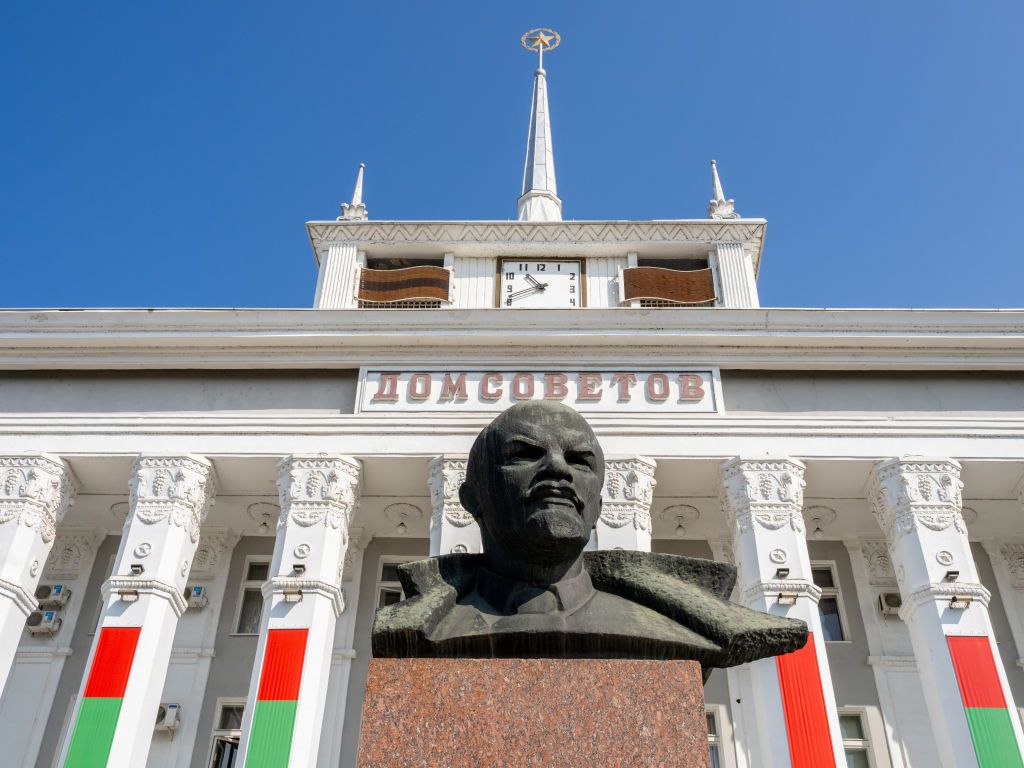
According to the poll, 45% of people would vote for reintegration with Moldova, while 38% would vote against it, and 17% are undecided, would not answer, or would not vote.
Furthermore, 25% of voters from the Russian-occupied left bank voted to entrench the country's path toward the EU into the constitution during the October referendum.
Only 5% voted in favor of the EU in the southern autonomous region of Gagauzia, controlled by Chisinau but having a largely pro-Russian elite and population.
Harsh winter
It is clear that Moldova cannot rely on Russian gas for its electricity. "We are paying the cost for 30 years of 'comfort'," Serebrian said.
According to the International Energy Agency, interconnections with Romania are particularly important for Moldova's energy security.
Chisinau is currently able to import some electricity from Romania via the Vulcanesti-Isaccea electric line, as well as several smaller lines. Three further 400 kilovolt (kV) electric lines are due to be built by the end of 2025, 2026, and 2029.
Green energy may provide some relief and independence.
Moldova has tripled its solar capacity in the past year, according to the National Centre for Sustainable Energy.
But "every country could be doing more to deploy clean energy technologies," including Moldova, said Tim Gould from the International Energy Agency, "especially since a growing number of these technologies are cost-competitive with fossil fuels and can bring important benefits for energy security."
But market prices may be a lot higher than what Moldovans pay now. "Independence has a cost," Serebrian said.
